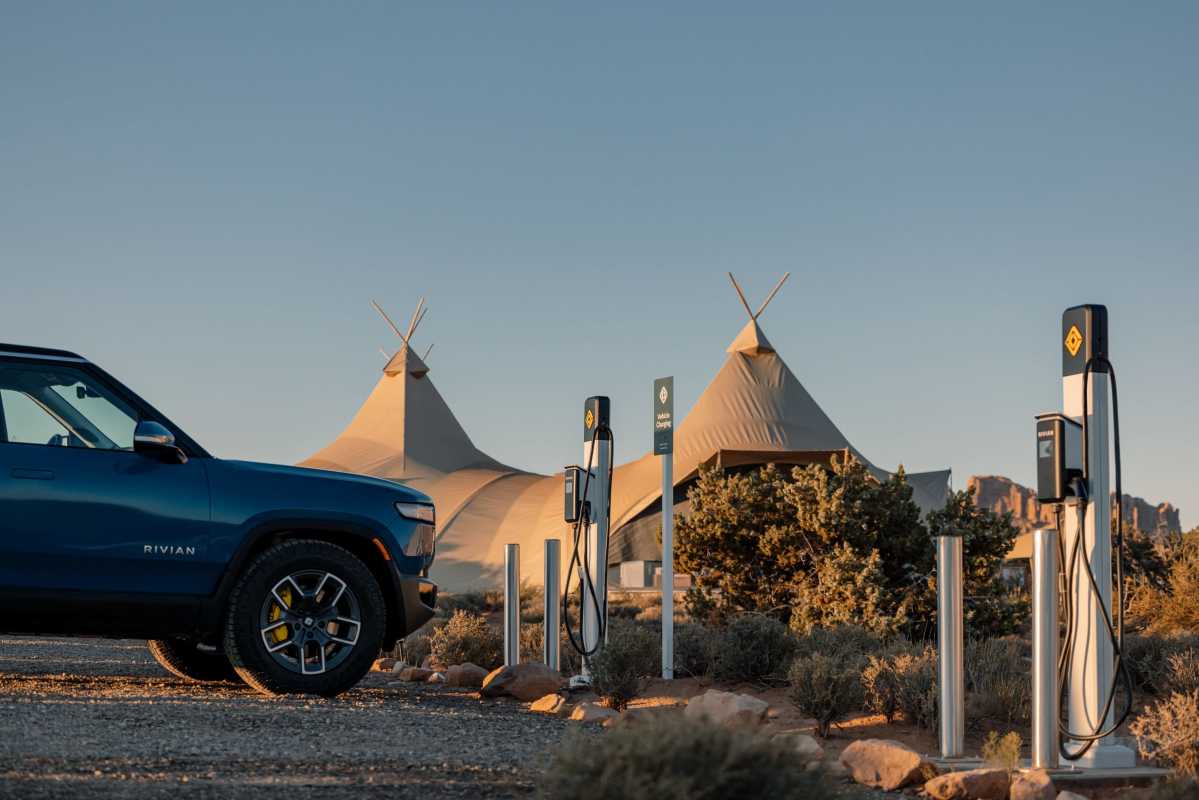A new bill could put a dent in EV drivers’ savings
Transportation and Infrastructure Committee Chair Sam Graves, who is also a Congressman representing the 6th District of Missouri, has proposed a federal bill that would require electric vehicle (EV) drivers to pay a yearly registration fee of $250 and hybrid owners to cough up $100 annually, according to Reuters.
The suggested annual EV registration fee, which essentially operates as a tax, is based on a Federal Highway Administration estimation that the average American uses about 550 gallons of gas per year, according to InsideEVs. However, the current federal gas tax is 18.4 cents per gallon, which comes out to about $101 when multiplied by 550, so there’s a significant discrepancy with the fee for all-electric models, even if you go with the bill’s initial suggestion of charging electric car owners $200 yearly. In other words, if the bill passes, EV owners would be paying an annual registration fee more than twice the average gas tax or the equivalent of the $0.184 tax on 1,389 gallons of gasoline. A proposed $20 annual fee for all drivers that was part of the bill was dropped.

Porsche
The bill suggests that the $250 EV and $100 hybrid registration fees would generate around $40 billion over the next decade for the Highway Trust Fund (HTF), which pays for a variety of transportation infrastructure projects, Benzinga reports.
“By leveraging states’ existing registration systems, the bill assesses an annual registration fee of $250 on EVs and $100 on hybrids (which currently pay a lesser share into the HTF) to ensure they pay for their use of the nation’s roads and bridges. Together, these new user fees are expected to increase federal revenues by a conservative estimate of more than $38B over 10 years, all of which will be deposited into the HTF,” Transportation and Infrastructure Committee Chair Sam Graves said in an interview with Design News.
Consumer Reports notes that seniors, who drive far fewer miles than the average American, would have to pay almost six times the amount of driving the average new car getting 28 MPG. While hybrid owners wouldn’t pay as much as EV owners, they would still face an annual fee roughly twice the amount they would pay in federal vehicle gas taxes when driving a less fuel-efficient internal combustion engine (ICE) model. Seniors driving hybrids would have a yearly fee three times that of a gas-powered car. The Transportation and Infrastructure Committee’s bill also includes inflation adjustments for the annual EV and hybrid fee but doesn’t include inflation adjustments for ICE vehicles. The committee reviewed the bill on Wednesday before it heads to the House Budget Committee.
Rivian
Final thoughts
The Transportation and Infrastructure Committee is right to consider changes to fuel taxes, which haven’t been updated since 1993, considering that funding for the Highway Trust Fund has declined since around 2008. Just in 2024, the fund faced a deficit of $20.6 billion. While fuel tax revenues haven’t been keeping pace with the increased adoptions of EVs, the revenues haven’t experienced any adjustments for inflation, and EV owners appear to be picking up all the slack. EV drivers will also have to pay this significantly higher $250 fee upfront at registration instead of incrementally, like ICE owners would.